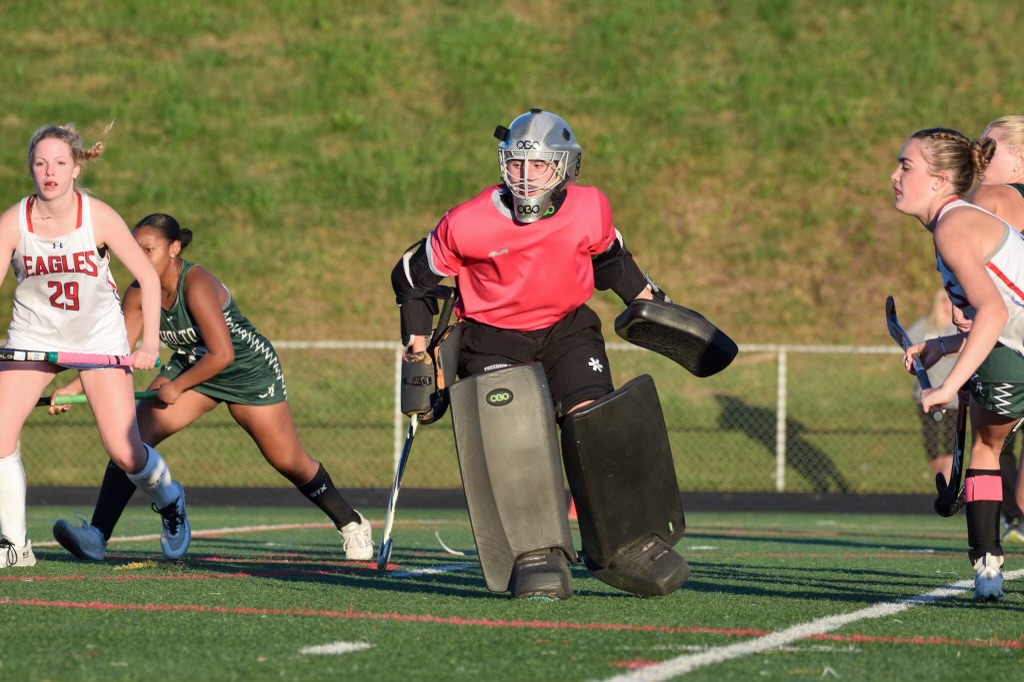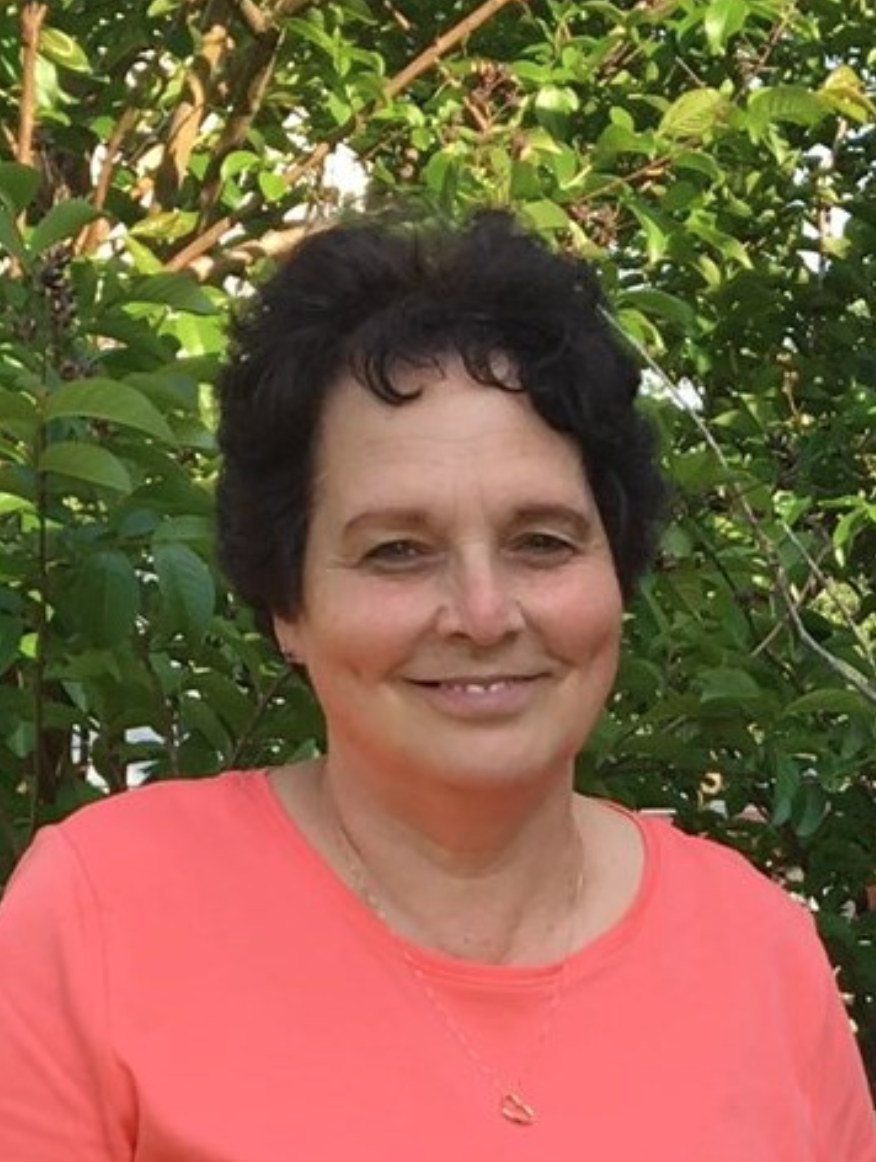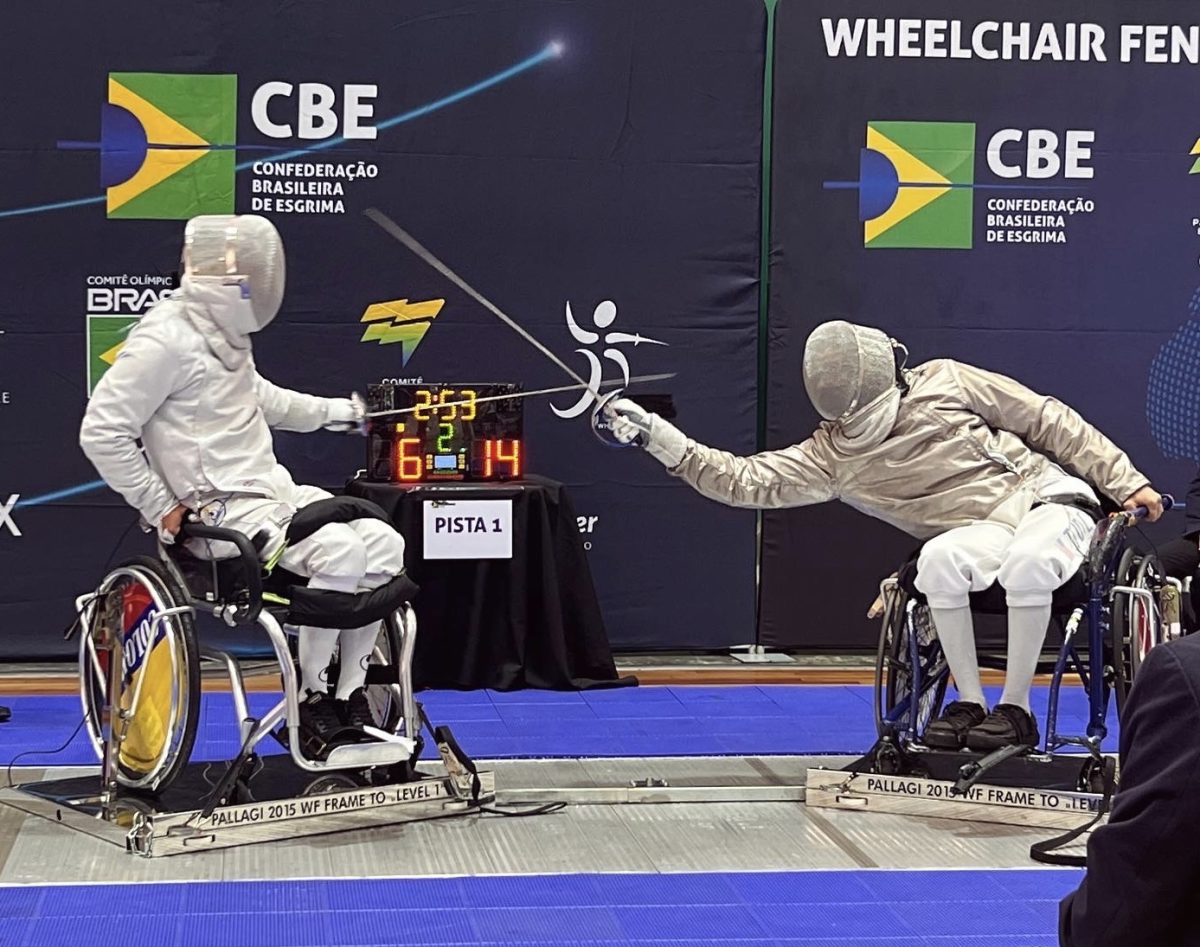Poetry Out Loud (POL) is a national recitation competition where high school students can learn about poetry and the art of recitation. Nationally, it is sponsored by the National Endowment for Arts and locally by the Maryland Arts Council. Each year, $50,000 is awarded to the national finalists.
The competition focuses beyond reading a poem; instead, it requires students to learn about the presentation style and rhetoric while thinking critically about the meaning of words and phrases. It is about making the words come alive. POL allows students an opportunity to express themselves in ways beyond the traditional classroom setting, including clearer use of rhetorical strategies.
Students can begin competing at the class level in their English classes, and if they win, they may advance to the school, regional, state and even national levels. Students are required to select poems from the POL website and are assessed based on physical presence, voice and articulation, dramatic appropriateness, evidence of understanding, overall performance and accuracy.
This year, the school’s annual Poetry Out Loud competition was held on Tuesday, Jan. 23, where seven sophomores — Alexandra Levin-Lozovatsky, Jackie James, Shalisa Ibad, Hannah Elpus, Sandy Jayaprakash, Owen Landle and Winnie Wiriyacoonkase — competed.
Every year, the event is hosted by the National English Honor Society (NEHS) with a specific theme. This year, NEHS partnered with the National Chinese Honor Society to create the “Year of the Dragon” theme. The event featured a Kung Fu Dance Dance and a choral performance from Bella Voce during the competition.
Shalisa Ibad and Sandy Jayaprakash won the competition and advanced to the regional level on Feb. 10 at the Howard County Center for the Arts. Jackie James served as their alternate.
After completing the regional level, Ibad explained that the regional competition is similar to the school format, where there are two rounds in which each competitor recites one poem for each round, and the judges share the same rubric as the school-wide judges. The primary difference between the school and regional level is that there is an additional third round, serving as the “tie round.” The top three contestants were selected to recite a third poem, determining which reciter would advance to the state competition. Unfortunately, Ibad did not advance to the state level; however, she remains grateful for the experience.
Ibad prepared for the school and regional competitions by researching and understanding the authentic meanings behind each poem, then staying in each line and adding tone and attitude. Lastly, she practiced different physical gestures and pitches in order to convey the message of the poem more deeply. Throughout every step of the process, she believed that practicing was what ultimately led to success.
Ibad shared that she ultimately joined POL because she was a part of the planning committee, which organizes the school competition and selects the theme every year. In addition to being on the committee, she expressed that she had a passion for poetry, recitation and delivering speeches before POL, so it was a way for her to try something new. She also explained that working behind the scenes with planning and serving as an emcee enriched her overall experience and understanding.
“My biggest sources of motivation were probably my mom and Dr. McDonough. I remember my mom telling me that I could win this, and I would perform my poems for her, and she’d give me her feedback,” Ibad said. She added that the overall environment was supportive, from the hallways of the schools to Dr. McDonough’s frequent encouragement of “good luck.”
Beyond POL, Ibad shared that she was never fond of poetry because she never understood the poet’s true intent and that there always seemed to be a hidden message for her to decode, making her feel disconnected from the art. However, as she matured and composed her own poems, she started to look beyond the pages of an anthology. By practicing the art form herself, she was able to recognize the various figurative languages used and the cleverness of poets.
“I grew up hearing Urdu poetry from my mom, and those ghazals really turn something in your heart … most of the songs we listen to are poetry — there are just instrumentals and beats added to it … I find it to be one of the most beautiful ways to express emotions.”
After competing at both the regional and school levels, Ibad believed that it had shifted her perspective on humans and helped her understand the uniqueness of each individual. Since every poem is up to everyone’s interpretation, she believes it applies beyond just poetry but also through words, stories, experiences and lessons. Now, she’s finding herself constantly within poems and attempting to find meanings in all ideas and words instead of moving past them.
“Participating in POL has just increased my love and wonder for literary expression, and I hope to continue growing my love for it. Maybe I might even participate in POL again next year,” Ibad reflected.
ac/jy/yl/ew
For more breaking news and photos, follow The Wingspan on Instagram and Twitter @CHSWingspan.





